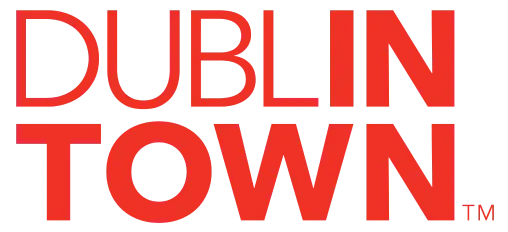About
GRAMMY award winning artist Annie Clark made her recorded debut as St. Vincent in 2007 with Marry Me, quickly becoming regarded as one of the most innovative and fascinating presences in modern music. Annie Clark made her recorded debut as St. Vincent in 2007 with Marry Me, quickly becoming regarded as one…
GRAMMY award winning artist Annie Clark made her recorded debut as St. Vincent in 2007 with Marry Me, quickly becoming regarded as one of the most innovative and fascinating presences in modern music.
Annie Clark made her recorded debut as St. Vincent in 2007 with Marry Me, quickly becoming regarded as one of the most innovative and fascinating presences in modern music. Her subsequent albums would include Actor (2009), Strange Mercy (2011), her self-titled fourth album and winner of the 2014 GRAMMY for Best Alternative Album. In 2017, her fifth album MASSEDUCTION would break St. Vincent into the U.S. and UK top 10s and win two more GRAMMYs (Best Rock Song for its title track, and Best Recording Package). 2021’s Daddy’s Home found St. Vincent channelling the hungover glamor and gritty sepia-toned soundtrack of 1970s downtown NYC to an ecstatic reception, ultimately winning her a second Best Alternative Album GRAMMY. Following a 2021-2022 global tour that reaffirmed St. Vincent’s status as one of live music’s preeminent forces with headline appearances at the likes of the Hollywood Bowl and Radio City Music Hall, Clark would begin work on album number seven: Her first fully self-produced album (having co-produced every one of her previous efforts), All Born Screaming is St. Vincent at her most primal. Featuring Clark leading “a curated group of rippers” through the brawny “Broken Man,” the mordant catwalk sashay through the deafening assault of self-loathing that is “Big Time Nothing,” the sublime, elegiac earworm “Sweetest Fruit,” All Born Screaming is equal parts spiritual desolation and rapturous acceptance. “If you’re born screaming, that’s a great sign,” says Clark, “because it means you’re breathing. You’re alive. My god. It’s joyous. And then it’s also a protest. We’re all born in protest in a certain way. It’s terrifying to be alive, it’s ecstatic to be alive. It’s everything.”
Ever since she covered Big Black’s “Kerosene” live in 2011 and the subsequent cataclysmic 7” split “Krokodil”/”Grot,” fans have known that some evil lurked in Clark’s guitar. (Take it back even further if you like: This is someone whose college noise band was named Skull Fuckers.) On All Born Screaming—the first half, at any rate—that lacerating aggression possesses a St. Vincent album for the first time, unleashing a reeling thrash laced with the formative DNA of Albini at his most corrosive and the ugly, spectacular catharsis of Nine Inch Nails, and opening up a brand new fracture in her song writing. “It’s my least funny record,” says Clark with knowing wryness.
Brawny lead single “Broken Man” is unhinged by loss and lust, unveiling our debilitated antagonist in a desperate confrontation that begs “lover nail yourself right to me / If you go I won’t be well / I can hold my arms right open / But I need you to drive the nail.” “Reckless”
All Born Screaming is Clark’s first entirely self-produced record (having co-produced all of her previous records). Production 101 is knowing the right people for the job, and All Born Screaming boasts “a tight little wrecking crew,” says Clark. “A curated group of rippers.” On “Broken Man” and “Flea,” that’s Dave Grohl on drums. (If we’re tracing this virulent seam back through Clark’s work, recall the surviving members of Nirvana inviting her to help induct the band into the Rock and Roll Hall of Fame in 2014.) “Dave is one of the greatest drummers ever because he’s a great songwriter,” says Clark, noting that Grohl heard the “Yes-style prog section” of “Flea” just three times before he knew “every phase and turnaround. My engineer, Cian Riordan, has a video of me in the studio when Dave was playing. I’m in my chair hearing the first take, and I immediately stand up and, like, my hair is on fire.”
On the album’s pivot into the second half, “Violent Times,” we’re waking up and understanding the stakes have irrevocably changed, and who hasn’t felt that these past however many years? The difference, in the album’s back end, is the realization that we must love one another or die, set to an expansive, enveloping palette that steps back from the guitar offensive: Gainsbourg-worthy grandeur on “Violent Times,” the “what if someone who loved 2 TONE did it all wrong?” of “So Many Planets,” about the stumbling search for a place to call home. “The first half is reckoning with loss and how life is basically impossible,” says Clark, “but the second half is: but we get to live it so we better fucking dig in.”
Unlike the ‘70s cosplay of Clark’s previous album, here, there’s no aestheticizing pain or conceptualizing loss. On Daddy’s Home, Clark says she needed to “become the music my father loved in the hope it would heal me, give me the agency as ‘daddy.’ That was probably largely misinterpreted, but I have no regrets—it’s what I needed to do.” With this record, she says emphatically, “I want to fuck people up.” As the title states, we’re All Born Screaming. It’s both a horrifying condition and whaddya-gonna-do acceptance. “If you’re born screaming, that’s a great sign,” says Clark, “because it means you’re breathing. You’re alive. My god. It’s joyous. And then it’s also a protest. We’re all born in protest in a certain way. It’s terrifying to be alive, it’s ecstatic to be alive. It’s everything.”





